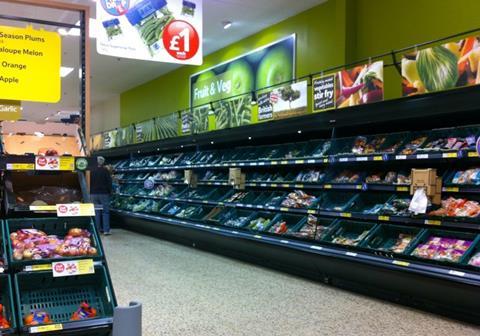Meeting comes as general grocery and fresh food prices hit record highs
The government has met with retailers to discuss the issues around UK food prices at a time of a cost-of-living crisis.

Chief secretary to the Treasury John Glen spoke to supermarket representatives on 11 May about the food price situation, where he heard about the drivers of food inflation and agreed that industry will continue to engage with senior government ministers on the matter and its impact on consumers.
A statement from the government said: “The government understands the concern among the British public about the current level of food prices and their impact on household budgets, which is why halving inflation this year is a top priority.
”To support households with the impact of rising prices, we are delivering one of the most generous cost-of-living packages in Europe – worth £3,300 per household on average over this year and last. This includes targeted support for the most vulnerable worth £900 for people on means-tested benefits, support with energy bills and uprating benefits by over 10 per cent.”
Food prices are continuing to hit record highs. Food inflation accelerated to 15.7 per cent in April, up from 15.0 per cent in March. That is above the three-month average rate of 15.1 per cent, and is the highest inflation rate in the food category on record.
Fresh food inflation also accelerated in April, to 17.8 per cent, up from 17.0 per cent in March. That, too, is above the three-month average rate of 17.0 per cent and is the highest inflation rate in the fresh food category on record.
“We should start to see food prices come down in the coming months as the cut to wholesale prices and other cost pressures filter through,” said Helen Dickinson, chief executive of the British Retail Consortium.
”In the meantime, retailers remain committed to helping their customers and keeping prices as low as possible. Government must also help by minimising the impact of oncoming regulatory burdens as these will hold back investment and ultimately contribute to ongoing high prices for already-squeezed households.”



